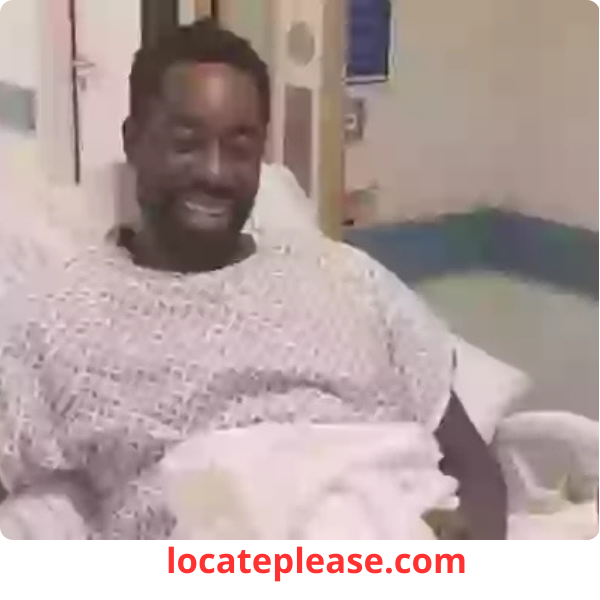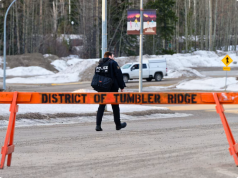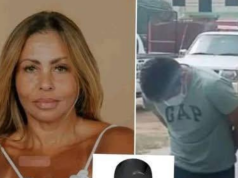What happens when your heart stops — when you’re pronounced clinically dead — and then, against all odds, you wake up again?
For Matthew Allick, a 42-year-old actor and care worker from the UK, this wasn’t a philosophical question.
It was his reality.
In August 2023, Matthew’s life changed in an instant when he collapsed at work — his heart stopping for 10 full minutes after a sudden cardiac arrest caused by a massive pulmonary embolism.
Now, having made an extraordinary recovery, he’s opening up about the surreal experience of dying, being brought back, and waking up to a second chance at life.
“I Knew Something Was Wrong”
At first, Matthew brushed off his symptoms.
He’d recently switched to night shifts and noticed he was more tired than usual. His feet were swollen, and he struggled to catch his breath — but he assumed it was just his body adjusting.
Then came the moment everything changed.
“I went to climb a single step at work,” he recalled, “and I thought, ‘I can’t do this.’
I turned to my friend and said, ‘You need to call an ambulance.’
I wasn’t in pain — but I knew something was seriously wrong.”
At the hospital, doctors asked him to rate his pain on a scale of 1 to 10.
“I told them it had been a zero — but suddenly, it was an 11,” Matthew said.
“They said, ‘It can’t be an 11.’
I said, ‘Now it’s a 13.’”
And then — he collapsed.
No pulse. No breath. No heartbeat.
Clinically dead.
The Fight to Bring Him Back
Doctors rushed in with a defibrillator and began aggressive CPR — so intense it caused internal bleeding.
For 10 minutes, Matthew was gone.
“We managed to get a pulse back,” a doctor later told his family.
“But he’s not out of the woods.”
Matthew was placed in a medically induced coma while doctors worked to save his life.
Scans revealed blood clots the size of a cricket ball in his lungs and heart — a rare and life-threatening condition.
Emergency surgery was performed to remove them.
“It Felt Like a Peaceful Sleep”
When Matthew finally woke up, he had no memory of being dead — but he remembers the moment he returned.
“I don’t remember anything from when I was gone,” he said.
“But coming out of the coma? It felt like I had just woken up from a deep, peaceful sleep.
There was no fear. No pain. Just calm.”
He was disoriented at first, struggling with memory and strength — but his mind was clear, and his spirit was grateful.

A Miracle — and a Second Chance
Doctors were stunned by his recovery.
Given the length of time without oxygen, many patients suffer brain damage — but Matthew regained nearly full function.
“I’ll never be 100% again,” he admits.
“I’m on blood thinners for life, and I’m about 75% of who I used to be.
But I’m alive. And that’s what matters.”
He credits his survival to quick medical intervention, skilled doctors, and one crucial factor: blood transfusions.
“The blood I received saved my life,” Matthew said.
“And I’ve since learned how vital it is to have ethnically matched donations — especially for people from Black and minority backgrounds.”
A Message of Gratitude — and a Call to Action
Matthew is now on a mission: to raise awareness about blood donation, particularly within Black communities, where donation rates are disproportionately low — despite higher needs for matched blood types.
“I want people to know that donating blood isn’t just a kind act — it’s a life-saving one,” he said.
“I wouldn’t be here without it.”
He also wants to remind people to listen to their bodies.
“My symptoms weren’t dramatic — just tiredness and swollen feet. But they were a warning. Don’t ignore them.”
A Room Full of Love
One of the most powerful moments of his recovery came when he regained consciousness.
“I remember the doctors saying, ‘There are too many people in the room,’” Matthew laughed.
“My fiancée, my kids, my friends, my family — they were all there, every single day.”
That outpouring of love, he says, gave him the strength to fight.
“I look at my life now and I think: I’m so lucky to be here.
Every breath, every moment — it means more than ever.”
A Word from NHS Blood and Transplant
An NHS Blood and Transplant spokesperson said:
“While Matthew received blood from donors of various backgrounds, the need for more Black heritage donors is urgent. Patients from Black communities often require blood that closely matches their own, and increasing donations from these groups can make a life-or-death difference.”
Final Thoughts: A Life Interrupted — and Renewed
Matthew Allick’s story isn’t just about survival.
It’s about resilience, gratitude, and the quiet heroes — doctors, nurses, and strangers who give blood — who make second chances possible.
He didn’t see a bright light or meet lost loved ones.
But he did return with a clear message:
👉 Life is fragile.
Love is powerful.
And a single blood donation could save someone just like him.
Sometimes, the most powerful miracles aren’t in the afterlife — they’re in the next heartbeat.






